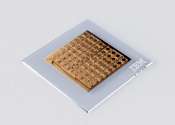IBM develops a new 64-core mixed-signal in-memory computing chip
For decades, electronics engineers have been trying to develop increasingly advanced devices that can perform complex computations faster and consuming less energy. This has become even more salient after the advent of artificial ...









